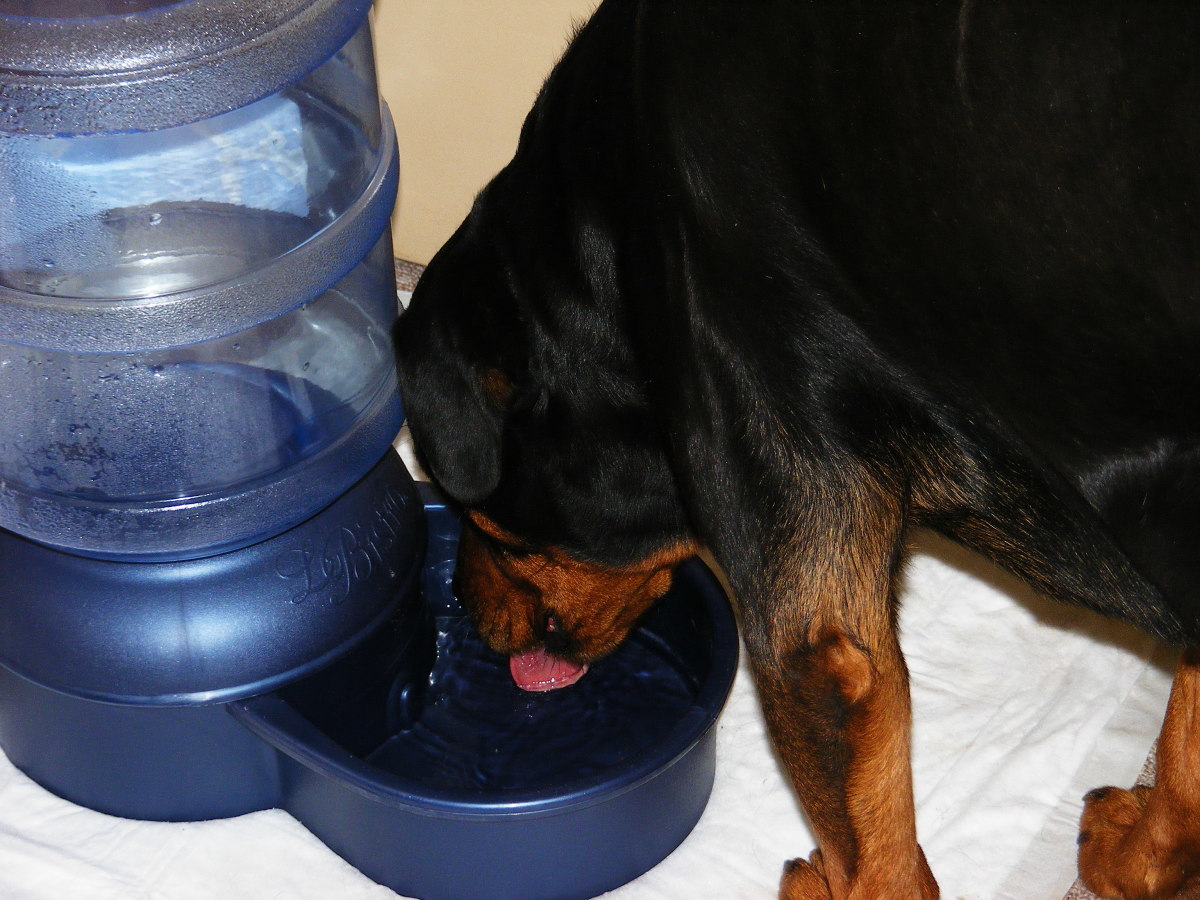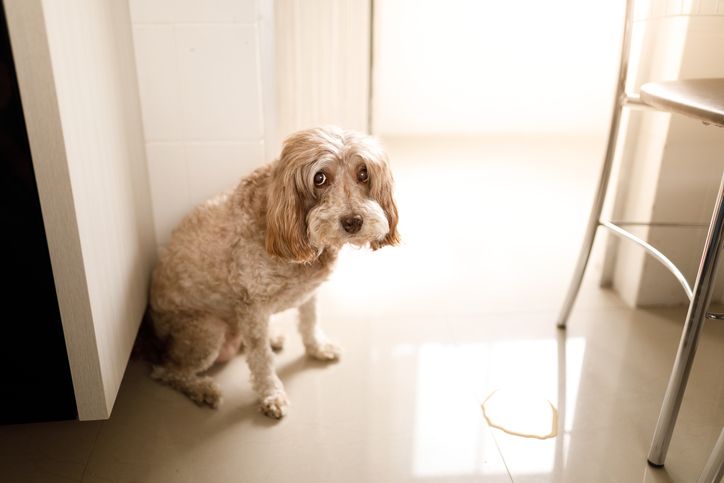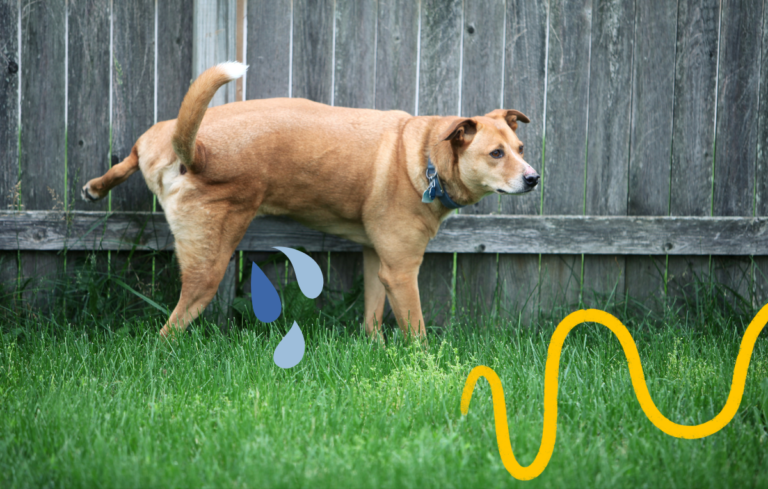If your older dog is peeing in the house and drinking lots of water, it could be a sign of various conditions such as bladder infection, Cushing’s disease, bladder stones, kidney failure, liver disease, dehydration, diabetes, cancer, or arthritis. Increased water consumption in senior dogs can indicate kidney failure, diabetes mellitus, or Cushing’s disease.
Dehydration may also cause increased water intake in dogs of all ages. Excessive urination and thirst in dogs, known as polyuria and polydipsia (PUPD), can be caused by hormone imbalance from endocrine disease or kidney failure. Kidney damage can lead to excessive urine production and increased drinking in dogs.
Understanding The Issue
Is your older dog peeing in the house and drinking lots of water? This behavior could be a sign of various conditions like bladder infection, kidney failure, or diabetes. It’s important to understand the underlying issue and consult with a veterinarian for proper diagnosis and treatment.
Causes Of Increased Water Intake In Older Dogs
Older dogs may start drinking lots of water due to various underlying health conditions. Some common causes of increased water intake in senior dogs include:1. Kidney Failure: When the kidneys become damaged due to chronic diseases, infection, toxins, or cancer, they are unable to function properly. As a result, excessive urine is produced, leading to increased thirst in dogs.2. Diabetes Mellitus: Excessive water intake can be a symptom of diabetes in dogs. This condition occurs when there is too much sugar in their blood, causing them to drink more water to compensate.3. Cushing’s Disease: Dogs with Cushing’s disease, a condition that affects the adrenal glands, may experience increased thirst as one of the primary symptoms.4. Hormone Imbalance: Endocrine diseases, such as hormonal imbalances, can lead to polyuria (increased urine production) and polydipsia (increased thirst) in dogs.5. Dehydration: Although more commonly seen in dogs of all ages, dehydration can also cause increased water intake in older dogs. This occurs when dogs lose more fluid than they take in, leading to a greater need for water.Causes Of Peeing In The House In Older Dogs
Older dogs may also start urinating in the house for various reasons. Some common causes of house soiling in senior dogs include:1. Bladder Infection: Urinary tract infections can cause dogs to urinate more frequently and have accidents in the house. It is essential to identify and treat infections promptly.2. Bladder Stones: The presence of bladder stones can irritate the bladder lining and lead to frequent urination and potential accidents in the house.3. Kidney Failure: Dogs with kidney failure may struggle to control their bladder, leading to house soiling. This often goes hand in hand with increased water intake.4. Liver Disease: Liver disease can affect the body’s ability to eliminate waste products, leading to increased urination and potential accidents. 5. Arthritis: In some cases, older dogs may have difficulty reaching the appropriate elimination area due to arthritis-related mobility issues. This can lead to accidents in the house.Understanding the causes of increased water intake and house soiling in older dogs is crucial in order to address these issues effectively. If your older dog is experiencing these problems, it is recommended to consult with a veterinarian for a proper diagnosis and treatment plan.
Credit: pethelpful.com
Common Medical Conditions
Is your older dog peeing in the house and drinking lots of water? This could be a sign of various medical conditions such as bladder infection, Cushing’s disease, bladder stones, kidney failure, liver disease, dehydration, diabetes, cancer, or arthritis. It’s important to consult a veterinarian to determine the underlying cause.
Kidney Failure
Kidney failure is a common medical condition that can cause older dogs to pee in the house and drink lots of water. When the kidneys are not functioning properly, they are unable to filter waste products from the blood efficiently. This results in increased urine production, leading to frequent urination. To compensate for the excess urine, dogs may feel the need to drink more water. Common signs of kidney failure in dogs include increased thirst, frequent urination, loss of appetite, and weight loss.Diabetes
Diabetes mellitus is another medical condition that can cause excessive thirst and urination in senior dogs. In dogs with diabetes, the body is unable to regulate blood sugar levels properly. This causes high blood sugar levels, which leads to increased thirst and water intake. Dogs with diabetes may also experience weight loss, increased hunger, and lethargy. It’s important to monitor your dog’s water consumption and consult a veterinarian if you suspect diabetes.Cushing’s Disease
Cushing’s disease, also known as hyperadrenocorticism, is a condition that affects the adrenal glands. Dogs with Cushing’s disease produce excessive amounts of a hormone called cortisol. This hormonal imbalance can lead to increased thirst and urination. Other symptoms of Cushing’s disease include weight gain, hair loss, and a pot-bellied appearance. If you notice these signs in your older dog, it’s essential to consult a veterinarian for proper diagnosis and treatment.Bladder Infection
Bladder infections, or urinary tract infections (UTIs), can also cause older dogs to exhibit increased thirst and urination. Bacteria entering the urinary system can cause inflammation and discomfort, leading to more frequent urination. Dogs with bladder infections may also experience pain or discomfort while urinating, cloudy urine, and accidents in the house. It’s crucial to seek veterinary care if you suspect a bladder infection, as prompt treatment with antibiotics is necessary.Liver Disease
Liver disease can impact the body’s ability to metabolize and eliminate waste products effectively. When the liver is not functioning properly, toxins can accumulate in the body, leading to an increase in water consumption and urination. Dogs with liver disease may also experience jaundice, vomiting, diarrhea, and weight loss. If your older dog shows any signs of liver disease, it’s important to consult a veterinarian for a proper diagnosis and treatment plan.Arthritis
Arthritis is a common condition in older dogs that can cause discomfort and pain. Dogs with arthritis may have difficulty moving, leading to decreased exercise and increased weight gain. This sedentary lifestyle can contribute to urinary incontinence, resulting in accidents in the house. Additionally, dogs with arthritis may experience dehydration due to reduced mobility and difficulty accessing water sources. It’s crucial to provide your arthritic dog with appropriate pain management and accommodations to maintain their overall well-being.In conclusion, several common medical conditions can cause older dogs to pee in the house and drink lots of water. Kidney failure, diabetes, Cushing’s disease, bladder infection, liver disease, and arthritis are some examples of these conditions. If you notice any changes in your older dog’s water intake or urination habits, it’s essential to consult a veterinarian for proper evaluation and treatment.Addressing The Issue
If your older dog is peeing in the house and drinking excessive amounts of water, it is important to address the issue promptly. There are several potential causes for these symptoms, ranging from medical conditions to behavioral issues. By following the appropriate steps and seeking proper veterinary care, you can help alleviate these problems and improve your dog’s quality of life.
Veterinary Check-up And Tests
It is crucial to begin by scheduling a veterinary check-up for your older dog. A thorough examination will help identify any underlying medical conditions that may be causing the increased thirst and urination. The veterinarian may recommend additional tests to get a better understanding of your dog’s health. These tests may include blood work, urinalysis, and imaging studies such as X-rays or ultrasounds.
Treatment Options
Once a diagnosis is made, the veterinarian will discuss the appropriate treatment options for your dog. The treatment will depend on the specific condition causing the excessive thirst and peeing. For example, if kidney disease is the cause, treatment may involve medication, dietary changes, and fluid therapy. It is important to follow the veterinarian’s recommendations and administer any prescribed medications as directed.
Diet And Hydration Management
In addition to medical treatment, diet and hydration management play a crucial role in addressing the issue. Your veterinarian may recommend a specific diet tailored to your older dog’s needs. This may include a low-sodium or low-protein diet, depending on the underlying condition. Providing access to fresh water at all times and monitoring your dog’s water intake is also essential. It may be helpful to establish a regular feeding and watering schedule to better manage your dog’s bathroom habits.
Behavioral Training And Environmental Changes
In some cases, excessive drinking and urination in older dogs may be due to behavioral issues or environmental factors. These can include anxiety, stress, a change in routine, or lack of access to outdoor areas. Behavioral training may be necessary to address these issues. Creating a comfortable and predictable environment for your dog can also help alleviate stress and reduce accidents in the house. Providing appropriate opportunities for exercise and mental stimulation can also help improve your dog’s overall well-being.
In conclusion, addressing the issue of an older dog peeing in the house and drinking lots of water requires a comprehensive approach. Seeking veterinary care, following recommended treatments, managing diet and hydration, and addressing any behavioral or environmental factors are all important steps towards resolving the problem. By taking these measures, you can help your older dog lead a healthier and more comfortable life.

Credit: www.newyorker.com

Credit: www.whole-dog-journal.com
Frequently Asked Questions Of Older Dog Peeing In House And Drinking Lots Of Water
What Does It Mean When A Senior Dog Drinks A Lot Of Water?
When a senior dog drinks a lot of water, it can indicate various conditions such as kidney failure, diabetes, or Cushing’s disease. Increased water consumption may also be due to dehydration. It is important to consult a veterinarian to determine the underlying cause.
Why Is My Dog Drinking A Lot Of Water And Having Accidents In The House?
Excessive drinking and accidents in the house in older dogs can be caused by various conditions like kidney failure, diabetes, or hormonal imbalance. It is important to consult a vet to determine the underlying cause and provide appropriate treatment.
Why Does My Dog Drink So Much Water And Pee So Much?
When dogs drink a lot of water and pee frequently, it can be a sign of various conditions, such as kidney failure, diabetes, or hormone imbalance. This can be caused by chronic disease, infection, toxins, or cancer. It’s important to monitor and consult a veterinarian if concerned.
When Should I Be Concerned About My Dog Drinking Too Much Water?
If your dog is drinking too much water, it can be a sign of various health conditions. Kidney failure, diabetes, and Cushing’s disease are common causes in senior dogs. Increased water intake may also indicate dehydration, which can occur in dogs of all ages.
Keep an eye on your dog’s water consumption and consult a vet if you have concerns.
Conclusion
N house-training. It’s important to address this issue as soon as possible to identify any underlying health conditions and provide appropriate treatment. Regular visits to the vet, maintaining a proper diet, and providing ample opportunities for bathroom breaks can help alleviate the problem.
Remember, understanding why your older dog is peeing in the house and drinking lots of water is the key to finding a solution and ensuring their overall well-being.



